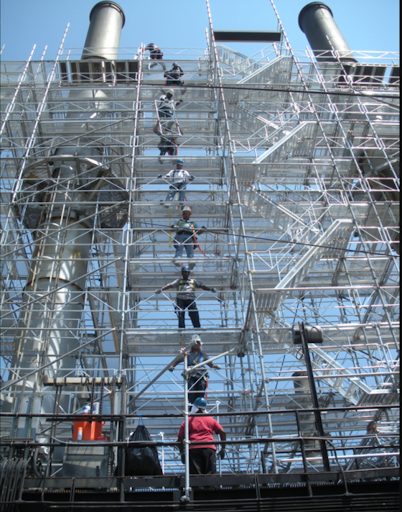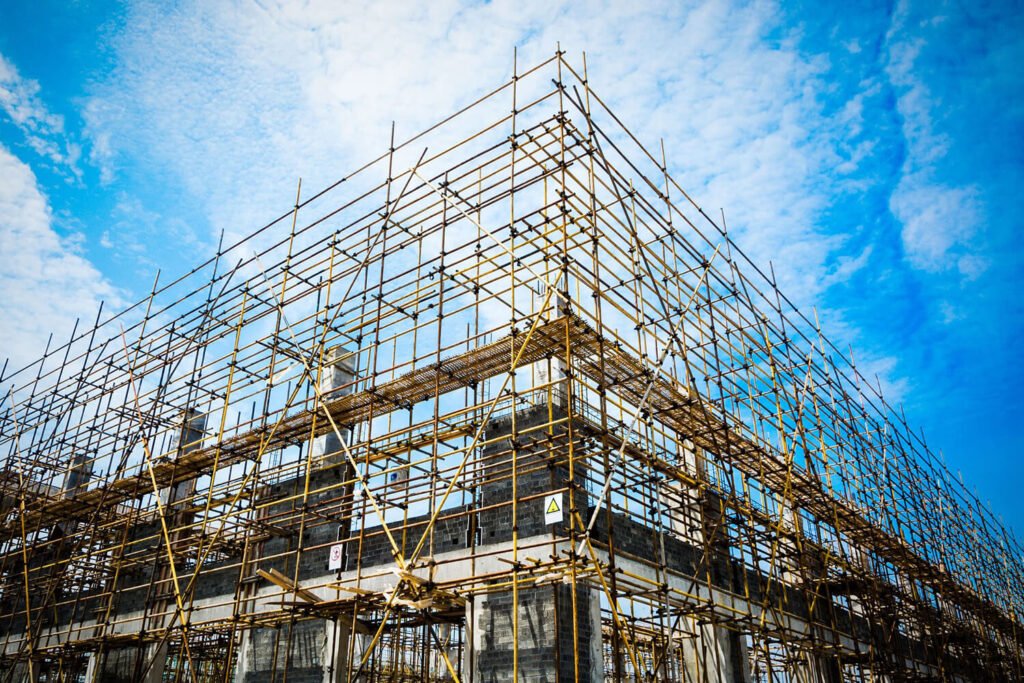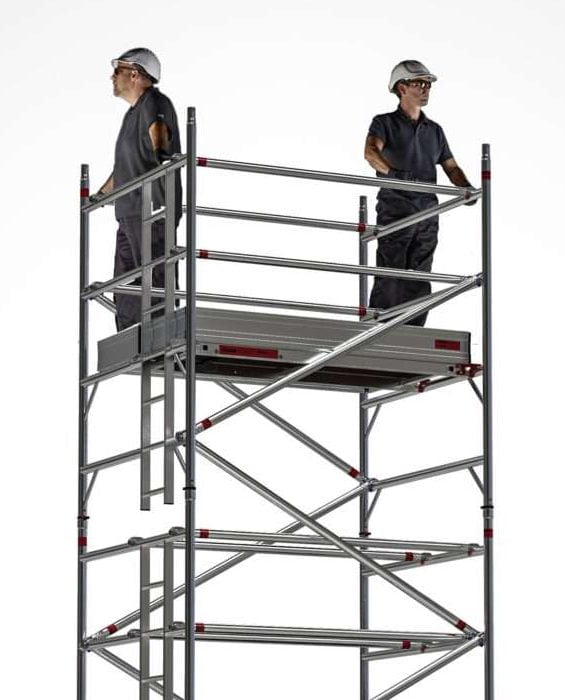Exploring the Numerous Sorts Of Scaffolding Utilized in Construction Tasks
The building sector counts heavily on numerous kinds of scaffolding to fulfill details job requirements, each offering distinct advantages and applications. Typical framework scaffolding provides a sturdy structure for general jobs, while suspended scaffolding is important for service skyscraper structures. Other alternatives, such as system and rolling scaffolding, accommodate performance and wheelchair, respectively. Moreover, the cantilever alternative shows indispensable in urban settings where space is constrained. Comprehending the nuances of these scaffolding types is vital for maximizing safety and efficiency on construction websites, motivating a better evaluation of their distinct characteristics and applications.

Conventional Frame Scaffolding
Traditional structure scaffolding is among the most widely made use of techniques in the building and construction sector due to its effectiveness and adaptability. This system is composed of vertical and horizontal frames that are constructed to produce a steady system for products and workers. The major elements consist of vertical articles, horizontal journals, and diagonal dental braces, which together offer a strong structure that can sustain considerable lots.
Among the essential benefits of traditional framework scaffolding is its adaptability to different building and construction projects, ranging from household structures to huge commercial structures. The modular layout allows for simple setting up and disassembly, making it reliable for both long-term and short-term tasks. Additionally, the system can be personalized in elevation and size, accommodating various structure layouts and website conditions.
Security is extremely important in scaffolding applications, and traditional frame systems are furnished with guardrails and toe boards to stop drops and make certain employee security. Regular assessments and adherence to safety and security laws are critical in maintaining the honesty of the scaffold (Scaffolding). Overall, traditional frame scaffolding stays a basic selection in the building and construction industry, providing a reputable platform for labor and enhancing general job efficiency

Suspended Scaffolding
Suspended scaffolding provides an unique option for construction jobs that need access to elevated surface areas, particularly in scenarios where standard frame scaffolding may be not practical. This kind of scaffolding is commonly suspended from the roof covering or upper degrees of a framework, utilizing a system of systems, wheels, and ropes to create a working area that can be changed to different elevations.
One of the main advantages of suspended scaffolding is its adaptability. It can be easily rearranged or reduced to fit adjustments in construction needs, making it suitable for tasks such as home window installation, façade job, and upkeep on skyscrapers. Additionally, the very little impact of put on hold scaffolding permits for better usage of ground room in city settings, where space is usually limited.
Safety is a critical factor to consider in the usage of suspended scaffolding. In general, suspended scaffolding gives a reliable and reliable solution for accessing hard-to-reach locations in numerous building scenarios, boosting both efficiency and safety and security on site.
System Scaffolding
System scaffolding, typically concerned as a modern-day service in the scaffolding market, consists of pre-engineered parts that can be rapidly assembled and adapted for various building and construction jobs. Scaffolding. This kind of scaffolding is defined by its modular style, which enables convenience and effectiveness on work websites, accommodating various heights and architectural needs
Generally made from high-strength steel or light weight aluminum, system scaffolding provides boosted durability and security. The components include upright posts, straight journals, and diagonal braces, which adjoin firmly, guaranteeing a durable structure. The layout usually incorporates standard fittings, streamlining see this website assembly and disassembly processes, consequently reducing labor time and costs.

Rolling Scaffolding
Moving scaffolding is a functional option to conventional fixed scaffolding, made for flexibility and convenience of usage on building sites. This kind of scaffolding includes a platform supported by frameworks with wheels, allowing workers to quickly transfer it as needed. The mobility function dramatically improves productivity, as it decreases downtime related to setting up and taking apart fixed scaffolding.
Commonly built from light-weight materials such as aluminum or steel, read here rolling scaffolding provides a sturdy yet portable remedy for tasks needing frequent repositioning - Scaffolding. It is especially useful in tasks such as paint, drywall setup, and electric job, where access to various elevations and locations is needed
Safety and security is critical in rolling scaffolding style, with functions such as securing wheels to avoid unexpected activity when being used, and guardrails to secure employees from falls. In addition, numerous versions are flexible in elevation, accommodating numerous job demands.
Cantilever Scaffolding

The design of cantilever scaffolding typically entails utilizing arms or braces anchored to a structure or structure, enabling the system to expand external securely. Security is paramount; thus, these scaffolds should be crafted to stand up to ecological problems and different check my blog tons. Routine examination and maintenance are necessary to make sure architectural stability and worker security.
Cantilever scaffolding is preferred for its flexibility and reliable use of area, making it a popular option in metropolitan environments where area restraints are common. It facilitates much easier accessibility to high elevations, eventually contributing to the total effectiveness of building and construction projects. Just like all scaffolding types, appropriate training and adherence to security requirements are essential for workers utilizing cantilever scaffolding.
Final Thought
To conclude, the diverse kinds of scaffolding made use of in building and construction projects each serve unique functions tailored to particular website needs. Typical frame scaffolding provides security, while suspended scaffolding supplies convenience for raised tasks. System scaffolding helps with fast assembly, and rolling scaffolding enhances mobility for varying workplace. Cantilever scaffolding efficiently deals with obstacles in urban settings. Comprehending these scaffolding types is vital for enhancing security and productivity in construction, ultimately adding to the effective conclusion of projects.
Traditional structure scaffolding offers a sturdy foundation for general jobs, while put on hold scaffolding is vital for work on high-rise structures.Moving scaffolding is a flexible choice to conventional fixed scaffolding, designed for wheelchair and ease of use on construction sites. As with all scaffolding kinds, proper training and adherence to security requirements are vital for workers making use of cantilever scaffolding.
Traditional structure scaffolding provides security, while suspended scaffolding uses versatility for raised jobs. System scaffolding helps with fast assembly, and rolling scaffolding improves flexibility for differing work atmospheres.